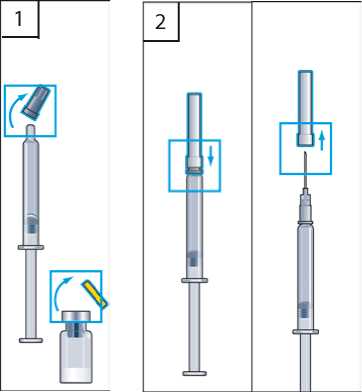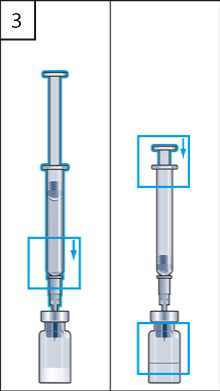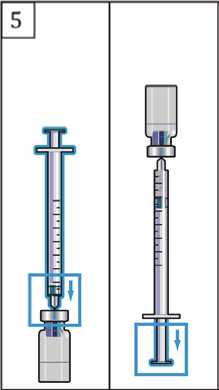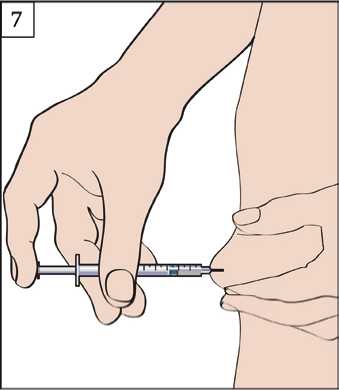Menopur 600 Iu Powder And Solvent For Solution For Injection
11 mm
< >
No text in this field
1. What Menopur is and what it is used for What Menopur is
Menopur contains a medicine called menotrophin. This is a mixture of hormones obtained from the urine of women who have passed the menopause.
• The dose of these hormones is given in International Units (IU).
• Each bottle (vial) contains the equivalent of 600 IU of FSH (follicle stimulating hormone) and 600 IU of LH (luteinising hormone).
8 mm
Menopur helps reproductive organs to work normally in both women and men. A fertility specialist should supervise your treatment.
ENOPUR®600IU
Powder and solvent for solution for injection
HIGHLY PURIFIED MENOTROPHIN
Patient Information
Read all of this leaflet carefully before you start using
this medicine.
• Keep this leaflet. You may need to read it again.
• If you have any further questions, ask your doctor, nurse or pharmacist.
• This medicine has been prescribed for you. Do not pass it on to others. It may harm them, even if their symptoms are the same as yours.
• If any of the side effects become serious, or if you notice any side effects not listed in this leaflet, please tell your doctor, nurse or pharmacist.
In this leaflet:
1. What Menopur is and what it is used for
2. Before you use Menopur
3. How to use Menopur
4. Possible side effects
5. How to store Menopur
6. Further information
What Menopur is used for
In women, Menopur is used for:
• Infertility caused by eggs not being produced properly in the ovaries (anovulatory infertility and polycystic ovarian disease).
It works by helping follicles (which contain eggs) to
mature in the ovaries.
• IVF (in vitro fertilisation) and other types of ‘assisted conception’. It works by helping multiple follicles and eggs to develop. The eggs are then harvested and fertilised outside the body.
In men, Menopur is used for:
• Low sperm count (oligospermia).
2. Before you use Menopur
Do not use Menopur if:
• You are allergic (hypersensitive) to menotrophin or any of the other ingredients of Menopur (listed in Section 6).
• You have a tumour in your pituitary gland (a gland located on the base of the brain which produces certain hormones, including growth hormones).
• You have a tumour in a part of your brain called the hypothalamus (part of the brain which controls the conditions within your body including body temperature and blood pressure).
• You have high levels of a hormone called prolactin (hyperprolactinaemia).
Take special care
Check with your doctor or nurse before using this medicine if:
• You have had infertility treatment in the past.
• You or someone in your family has had blood clots. This is because treatment with Menopur may increase the risk of having a clot. Pregnancy also increases the risk of having clots.
If any of the above applies to you (or if you are not sure), talk to
your doctor, nurse or pharmacist before using Menopur.
Pregnancy and breast-feeding
If you are already pregnant or breast-feeding, you must not use Menopur.
Tests before you start treatment
Before you start treatment with Menopur, your doctor will normally do tests to check the following:
Men and women:
• Your thyroid and adrenal glands are working properly.
• You do not have tumours of the pituitary gland or hypothalamus.
Women only:
• Your ovaries are working properly.
• You do not have higher than normal blood levels of a hormone called prolactin.
Important information about some of the ingredients of Menopur
Menopur contains lactose (which is a type of sugar). If you have been told by your doctor that you cannot tolerate or digest some sugars (have an intolerance to some sugars), talk to your doctor before using this medicine.
3. How to use Menopur
Always use Menopur exactly as your doctor or nurse has told you. You should check with your doctor, nurse or pharmacist if you are not sure.
Menopur is not recommended for children or elderly people.
Using Menopur
• You will have Menopur as an injection into a muscle or under the skin.
• You will either be given Menopur by a doctor or nurse or you will be taught how to give it to yourself.
• Menopur comes as a dry powder in small bottles (vials).
• Once the dry powder has been mixed with the solvent it can be stored for up to 28 days at room temperature (not more than 25°C).
• This mixed solution can now be used for multiple injections.
The dose and length of your treatment
• The dose, and how long your treatment lasts, depends on why you are using Menopur and how well it works.
• Your doctor or nurse will monitor how you respond to your treatment.
• This will help them to work out what dose you need and how long you need to use Menopur for.
In women:
Infertility (to help follicles to mature):
• If you are having periods, your treatment will start within the first 7 days of your menstrual cycle.
• You may use Menopur daily for up to 3 weeks.
• Or, you may use Menopur every other day for 6 days (three doses in total).
‘Assisted conception’ such as IVF:
• The usual dose is 75 to 300 IU each day.
• Your doctor will decide how long you need to use Menopur for.
In men:
For low sperm count:
• The usual dose is 75 or 150 IU two or three times a week.
• Treatment is normally continued for at least 3 or 4 months.
8 mm

Also, if you are a woman do not use Menopur if:
• You have tumours of your womb (uterus), ovaries or breasts.
• You have cysts on your ovaries or enlarged ovaries that are not due to polycystic ovary syndrome (a condition that prevents eggs from being released from the ovaries).
• You have bleeding from your vagina for an unknown reason.
• You have primary ovarian failure (a condition in which the ovaries do not function properly).
• You have blocked fallopian tubes, unless you are having IVF or ICSI (intracytoplasmic sperm injection).
• You are having an early (premature) menopause.
• You have certain physical problems in your reproductive organs (womb, fallopian tubes, ovaries or cervix).
• Your womb has been removed (hysterectomy).
• You have fibroid tumours (tumours in your womb that are not cancer).
• You are pregnant or breast-feeding.
Instructions for use:
If your doctor has asked you to inject Menopur yourself, you should follow the instructions provided on page 2.
The first injection of Menopur should be given under the supervision of a doctor.
Menopur is provided as a powder and must be dissolved before it is injected. The liquid (solvent) which you should use to dilute Menopur is provided in a pre-filled syringe. As this vial contains medication for several days of treatment, you need to make sure you only draw up the amount of medication that was prescribed by your doctor. Your doctor has prescribed you a dose of Menopur in IU. You should use one of the 9 administration syringes graduated in FSH/LH units provided.
No text in this field

Also, if you are a man do not use Menopur if:
• You have cancer of your testicles.
• You have prostate cancer.
Do not use Menopur if any of the above applies to you. If you are not sure, talk to your doctor, nurse or pharmacist before you start using Menopur.
continued -
c
(/)
8 mm
o

What to do:

If you use more Menopur than you should
If you think you have used too much Menopur, tell your doctor, nurse or pharmacist.
If you forget to use Menopur
If you think you have missed a dose, tell your doctor, nurse or pharmacist.
4. Possible side effects
Like all medicines, Menopur can cause side effects, although not everybody gets them.
8 mm
o
1. Remove the protective cap from the vial of powder and the rubber syringe cap from the pre-filled syringe with solvent.
2. Firmly attach the thick needle (Reconstitution needle) to the pre-filled syringe with solvent and remove the protective cap.
Side effects that can happen in both women and men: Common (affects less than 1 in 10 people):
• Headache.
• Feeling sick (nausea).
• Being sick (vomiting).
• Pain or swelling of the tummy (abdomen).
• Pelvic pain
• Pain or inflammation where the injection was given.


Uncommon (affects less than 1 in 100 people):
• Blood clots in the veins, usually of the leg (deep vein thrombosis).
Very rare (affects less than 1 in 10,000 people):
• Allergic reactions.
• If Menopur is used for a long time, your body may make antibodies which can stop the treatment from working.
3. Insert the needle through the rubber top of the powder vial and slowly inject all of the liquid to avoid creating bubbles.
Remove the syringe and the needle for reconstitution.
4. The powder should quickly dissolve (within 2 minutes) to form a clear solution. To help the powder dissolve, swirl the solution. Do not shake as this will cause air bubbles to form.
If the solution is not clear or if it contains particles it SHOULD NOT
be used.

Side effects that can happen in women:
If you notice any of the following signs, tell your doctor straight away. It may mean that your ovaries have been stimulated too much and you may need urgent medical treatment. This side effect is common (affects less than 1 in 10 people).
• Feeling sick.
• Being sick.
• Diarrhoea.
• Pain or swelling of the tummy.
• Weight gain.
• Difficulty breathing.
• Feeling more thirsty than usual.
• Producing less urine when you go to the toilet or going to the toilet less often.
If you notice any of the above signs, tell your doctor straight away.
If treatment with Menopur results in pregnancy
The following are more likely to happen in women who have had fertility treatment than in women who have got pregnant (conceived) naturally:
• Being pregnant with more than one baby. This carries an increased risk of problems for the mother during the pregnancy and at or around the time of birth.
• The fertilised egg implanting outside the womb (ectopic pregnancy). This is more likely if you have had tubal disease in the past (a condition where the fallopian tubes are blocked or damaged).
• Miscarriage or abortion.
• A slightly higher risk of your baby being born with physical defects.
Your doctor will be able to discuss this with you before you start treatment.
If any of the side effects become serious, or if you notice any side effects not listed in this leaflet, please tell your doctor, nurse or pharmacist.
5. Take the administration syringe with pre-fixed needle and insert the needle into the vial. Turn the vial upside down and draw the prescribed dose of Menopur into the administration syringe for injection.


6. Gently flick the administration syringe so that any air bubbles will be collected in the tip. Depress the plunger carefully until the first drop of fluid comes out.
Your doctor or nurse will tell you where to inject (e.g. front of the thigh, abdomen etc.).
Disinfect the injection site with the provided alcohol pads.
7. To inject, pinch the skin to produce a fold, and insert the needle in one swift motion at 90 degrees to the body. Press down on the plunger gently to inject the solution and then remove the needle.
After removing the syringe, apply pressure to the injection site to stop any bleeding. Gently massaging the injection site will help to disperse the solution under the skin.
8. For further injections with the reconstituted solution of Menopur, repeat steps 5 to 7.
5. How to store Menopur
• Keep out of the reach and sight of children.
• Do not use Menopur after the expiry date which is stated on the packaging.
• Before reconstitution, store in a refrigerator (2°C - 8°C) in its original container to protect from light.
• After reconstitution, the solution may be stored for a maximum of 28 days at not more than 25°C.
• Do not freeze before or after reconstitution.
• Medicines should not be disposed of via wastewater or household waste. Ask your pharmacist how to dispose of medicines no longer required. These measures will help to protect the environment.
6. Further information
What Menopur contains
• Menopur is a sterile freeze dried powder for injection. The active substance is Highly Purified Menotrophin. Each vial contains 600 IU of the active substance.
• The other ingredients are Lactose monohydrate,
Polysorbate 20, Sodium phosphate dibasic heptahydrate and Phosphoric acid (concentrated).
• The solvent contains Metacresol and Water for injection.
What Menopur looks like and contents of the pack
Menopur is supplied in boxes of 1 vial of Menopur powder,
1 pre-filled syringe with solvent for reconstitution, 1 needle for reconstitution, 9 alcohol pads and 9 disposable syringes for administration graduated in FSH/LH units with pre-fixed needles.
Marketing Authorisation Holder and Manfacturer
Marketing Authorisation Holder:
Ferring Pharmaceuticals Ltd., Drayton Hall,
Church Road, West Drayton, UB7 7PS, UK.
PL 03194/0106
Manufacturer:
Ferring GmbH, Wittland 11, D-24109 Kiel, Germany This leaflet was last revised in 03/2015.
Menopur is a registered Trademark.
FERRING